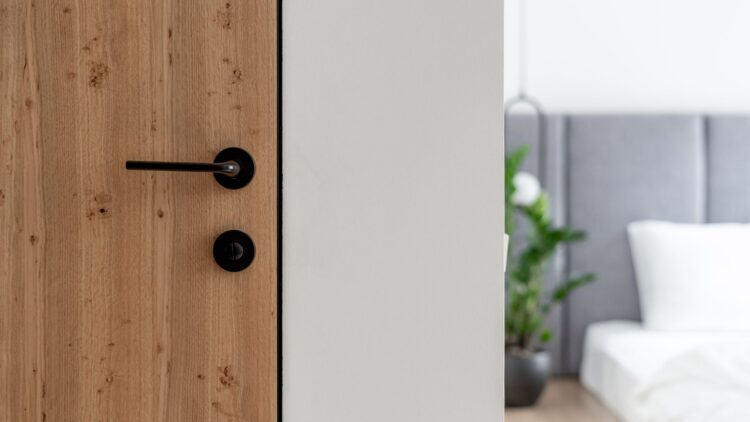Sleep hygiene is a very important concept that has begun to be recognized in later years. Being comfortable when you sleep and creating the appropriate environment to get as many hours of uninterrupted sleep as possible is the key to living a healthier lifestyle and having less issues with stress and memory processing. But one of the decisions that we need to make when considering how well we will sleep is whether or not to close the door, and, while no choice is bad per se, it does say a lot about you and your habits.
Closing the door or not while you sleep can be a force of habit that you just keep into adulthood or something premeditated that you do because of a reason. For example, if you live with roommates you might appreciate the privacy, while if you live alone it might be to trap heat or cold in the room to keep the temperature comfortable while you sleep. But, does it really say something about your personality other that you just like it?
Some psychologists seem to think so.
Door open or closed while you sleep, one more personality marker
While some people may find it claustrophobic, most people that close bedroom doors do so because of privacy or light conditions, meaning that they just prefer to be in their own controlled space at night that allows them to sleep better, but it may be a bit deeper than that and we just do not know it. According to the Greek outlet Enikos, people who sleep with the door closed often share six key traits, and these are quite curious, so even if you do not resonate with all six o them, you might find a couple that apply to you.
The first trait is a desire for personal security, and that does not just apply to the physical security of having a barrier to the outside world, but mental security as well. The door being closed acts as a clear boundary that no one can cross without the person that is inside knowing it, and gives the illusion of privacy and solitude.
The second trait is an actual desire for solitude, as a closed door really represents in a very visual way a barrier between those inside and those outside, which is why it can feel very violating when someone enters our space without permission. According to psychology, those who prefer to sleep with their doors closed need more personal space and enjoy their own company more than those who sleep with the door open.
The third trait is that those who tend to sleep and live behind a closed door are more introverted. Our personality is imbued in all we do, and while there are many nuances, those that are more introverted will inevitably also use sleep time to recharge and feel like they are alone, so closing the door while sleeping might also give them the same feeling of solitude and calm as when they are awake. This has nothing to do with being anti social, but it does say a lot about how we recharge.
The fourth trait has a lot to do with self-care, as those who close their door seem to be a lot more in tune with their needs and what they need to do to meet them. It creates a place without expectations that can help them reduce stress and improve mental health.
The fifth trait speaks about a person’s desire for independence, and shutting the door is seen as a way to exert personal autonomy both over yourself and your space, whereas the sixth trait can be seen as the pursuit of freedom, even if that might seem contradictory.

